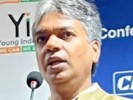The recently announced schedule of the Lok Sabha election, spanning seven phases spread across 44 days, has stirred controversy among opposition parties in India. They have criticised the Bharatiya Janata Party (BJP)-led Centre, alleging that the extended schedule is designed to afford ample time for the Prime Minister to tour extensively and for the BJP to mitigate anti-incumbency sentiments. Opponents argue that a multi-phase election unfairly favours the ruling party, particularly due to their significant financial resources.
The ruling BJP, however, contends that the increasing number of voters necessitates adjustments in the election schedule to ensure the integrity of the electoral process.
Historically, the election schedule has witnessed a cyclical pattern since India's inaugural polls in 1951-52. Initially spanning 120 days, it reached a low of only four days in 1980. Subsequently, the duration fluctuated, reaching 27 days in 1991, dropping to 11 days in 1996, and then rising to 12 days in 1998, and further to 29 days in 1999. It dipped to 21 days in 2004, before climbing to 28 days in 2009. Since then, the duration has steadily increased, culminating in the current 44-day schedule for 2024.
The question arises: does a longer election schedule benefit an incumbent government in retaining power? Analysis of the data yields intriguing insights.
Duration
No. of
Elections
Elections In Which Incumbents Retained Power
Probability
Of Success
Longer
8
5
62.5%
Shorter
7
3
42.9%
Similar
1
0
0.0%
Of the 17 general elections held thus far, we exclude the first one as it serves as the baseline. Of the remaining 16 elections from 1957 to 2019, eight elections witnessed longer schedules, seven had shorter ones, while one had a schedule to similar to that of a previous election.
Out of the eight elections with longer schedules, the incumbent government retained power in five. Out of the seven elections with shorter schedules, the incumbent won only thrice and lost four times.
The probability of a ruling party returning to power is 62.5% in the case of a longer election schedule, whereas it drops to 42.9% with a shorter schedule.
In conclusion, historical data suggests that a longer election schedule tends to favour the return of the incumbent. However, it's important to note that this is not the sole determining factor, as various other factors do play an important role.
The upcoming 2024 elections, with a longer schedule of 44 days compared to 39 days in 2019, will be closely observed to see if the trend persists.
PromotedListen to the latest songs, only on JioSaavn.com
(Amitabh Tiwari is a political strategist and commentator. In his earlier avatar, he was a corporate and investment banker.)
Disclaimer: These are the personal opinions of the author.





















 Toi Staff
Toi Staff Gideon Levy
Gideon Levy Belen Fernandez
Belen Fernandez Rami G Khouri
Rami G Khouri Donald Low
Donald Low Mort Laitner
Mort Laitner Ali Fathollah-Nejad
Ali Fathollah-Nejad Nikkei Editorial
Nikkei Editorial Michael Kwet
Michael Kwet
